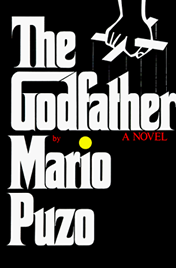You’ve read all the books, taken the workshops, and you’ve created your character bibles. You’ve even thought a little about which characters you like and why (see my post Memorable Characters – Who Do You Like?). Still, your character isn’t quite quintessential and therefore not memorable. What to do? Learn from the best. “But!” you say, “I don’t have time to study all those books, see all the movies!” The solution is easy – read April 2016’s blogs on Creating Memorable Characters. I’ve gleaned some tips and have summed them up (or have taken excerpts). Click on the links to each person’s blog to read it in its entirety.
These are the best how-to’s! Seriously, there’s a lot of great take-aways in these.
Sometimes less is more …
For David Carrico (Enter the Villain), Baron Vladimir Harkonnen is an absolute sadist, a pederast, and an incestophile, yet very little of that is shown “on screen” so to speak in the novel. The reader is given glimpses here and there of the raw evil lying beneath the surface of what is otherwise a very forceful, articulate, and urbane man. Herbert made the Baron memorable by understating him
Leigh Galbreath (Chaos For It’s Own Sake) says she doesn’t want to sympathize with a great villain and wants a villain that will make the hero work for every inch. What she loves about the the Joker in Christopher Nolan’s The Dark Knight, is Nolan’s conscious decision to leave some of the story up to the audience.
Mat Cauthon in Robert Jordan’s The Wheel of Time series is a stellar example of how to make a character funny not by what they say, but by who they are. In Gambler, Trickster, Son of Battles, Gregory D. Little notes that the humour of Mat’s character isn’t in what he says, but rather the irony the series continually thrusts upon him: contemptuous of nobility he, of course, marries an empress.
A Mix of Good, Bad and Ugly or, the Imperfect Character
In Taking Strides in Character Development, Sean Golden points out that Strider’s mysterious past, his wit and wisdom, all factor in to create a reluctant hero in an almost a surly way. Strider struggles with self-doubt. He falters. He worries. He doubts. He takes chances. And in the end, he finds himself.
Characters become more likeable and sympathetic when they suffer or show genuine concern even if it’s at their own expense. In The Roller Coaster that was Tig Trager, Jace Killan explains that Tig wasn’t all good or all bad and it was Tig’s good traits that got him into trouble and sometimes it was his bad traits that got him out. It wasn’t easy and it took time for Tig to recover from what he had done.
Not every memorable character needs fisticuffs
You don’t need fisticuffs to be a hero or memorable. Evan Braun (The Ultimate Philosopher King) writes that Jean Luc Picard is the philosopher who rules as king, the true pilot who observes the stars and the heavens to preside over his ship. In the midst of near-perfect humanity, Picard shines brightly. As Shakespeare might say, he is the paragon of animals.
Inner strength without physical prowess can make for an admirable persona and Dashti in Dashti of a Thousand Days proves that. Colette Black notes that it’s complex characterization, where Dashti learns to temper a character flaw and discovers that her real power lies, not with physical prowess, but in her determination, an inner strength and loyalty.
The everyday man is tested…
In Yippee-ki-yay: The Most Reluctant Hero, Kristin Luna writes about how John McClane is a great example of how a hero doesn’t always have to be willing. He can be the wrong guy in the wrong place at the wrong time and still kick some major butt. Giving your hero a strong personality and a little reluctance can be a recipe for one of the most memorable heroes of all time.
For Frank Morin (When a Gardener Helps Defeat a Dark Lord) Samwise Gamgee is memorable because he accepts that his place in the world is not to be the hero, but to be the hero’s cook, assistant, and bodyguard. And yet, he demonstrates in his simple way that heroes are not always the great warriors, with the flashy armor or dazzling magic. Heroes get the job done. Any one of us could be Sam.
In the life of every evil person there is a series of decisions that lead, inevitably, to damnation. This is the moment where your villain goes wrong. The moment where he or she makes the decision to do the wrong thing for all the right reasons. After that, it’s a slow and gradual slide into hell. That’s Frog Jones’ take on Walter White. To learn more, read Regarding the Humble Blowfish.
Just because that’s the way it is…
Kim May (Marty Stus by Moonlight) writes about Chiba Mamoru being an ideal of a man: strong, silent, and enigmatic. The perfect gentleman whose sole purpose is to be Sailor Moon’s love interest, to rescue her from peril when her klutziness and fears get the best of her. You have to admit. There are times when we really really need that kind of rescuing. Marty Stus were never meant to be the ideal we should hold out for. They’re the ideal that we have little escapist fantasies about on a moonlit night when reality is too much…and there’s no shame in that.
Which brings me back to Leigh Galbreath’s post about the Joker because sometimes you want Chaos For It’s Own Sake.
Villains come in all shades
The reluctant villain and one who you can’t resist! In A Character You Can’t Refuse, Marta Sprout talks about how Michael Corleone does some terrible things and yet we still like him. We’re drawn to him as he is slowly pulled away from his own honorable world and into his family’s mob dealings. When a character changes so profoundly it’s engrossing and it was done one reasonable step at a time. At each moment Michael is held tightly into his role where he can’t back out.
The loveable antagonist. Instead of hating Gollum, David Heyman, reveals in A Preciously Complex Character that he liked Gollum, felt sorry for him, and hoped Frodo would find a solution to his problem that didn’t force Gollum (and Smeagol) to lose. Gollum’s love of the Ring is heartbreakingly pure: even as it destroys and corrupts him, he wants nothing from life other than to possess it.
That’s me! Sometimes the villain is us pushed to the wall. In Walter White, you monster, E. Godhand says that a villain protagonist whose methods may not be right, can win your sympathy and support because after doing everything right and getting nothing in return, he has nothing left to lose. We feel the adage, “But for the Grace of God, goes I.”
Pure Evil. And, as David Carrico said in Enter the Villain, Baron Vladimir Harkonnen is an absolute sadist, a pederast, and an incestophile. Pure evil works too!
A Personal Truth We Can Relate To – and it comes in all shapes, sizes and tropes!
Character Arc – In Summoning Character Development, Sarah Golden found that Yuna’s response to adversity (not the sword but endurance and wisdom) made her an admirable character with emotional and spiritual strength. But, she didn’t start out that way. She develops from doing what other people want to having her own thoughts, and making her own decisions.
Someone different yet real – When you bring in a character who is so different from the others, she not only illuminates the cast, but her character is more profound. But, as Peter Clampton explains in The Girl Who Changed EVERYTHING!, Asuka Langley Soryu is no cheap trope, used to simply spice things up for she brings her own history, strengths and weaknesses. She’s a protagonist with real and profound problems who deals by self-medicating in isolation.
I love doing this! Jacqui Talbot’s admiration of Flavia de Luce (You Had Me at Nitrogen Pentoxide) comes from her own love of chemistry and solving mysteries. As she says, Flacia is a beguiling cross between Pippi Longstocking and Sherlock Holmes. Flavia is an eleven-year-old sleuth with a passion for chemistry (specifically poisons) and a penchant for crime solving.
The hero within rises! D.H. Aire (A Lesson in Character from Superman) tells us that Superman was created during the cusp of Worlds War II to illuminate Americans about the Nazi threat. Thus a superhero who fights for truth and justice was more than a mere story for Siegel and Shuster. Superman is memorable because he had a secret identity (a hero deep inside), and that’s a feeling we all have, that inside, we too are heroes.
Do what must be done! For Joshua David Bennett (The Power of Pain) Kaladin Stormblessed’s ability to overcome pain and hardship, not wallow in it, made him memorable. He’s an inspiration to rise to the occasion, to do what must be done.
The devil is in the detail so find one!
As Josh Vogt explains of his own writing in When All Else Fails, Bring in a Lizard, the protagonist, Dani wasn’t memorable until he gave her a quirk. A pet lizard! The lizard seems at odds with her original self. That presented a mystery (even a minor one) to unravel, which created personality paradoxes which were entertaining.
Taken to another medium, some characters sometimes become more memorable and others we wish we could forget.
Watching Sidney Poitier play Kimani Wa Karanja was profoundly moving for W.J. Cherf (Something of Value: Of Boyhood Friendships and Harsh Realities). Kimani (Poitier) became his favorite character (actor) because of his immense depth, passion, pride of place, and desire to succeed. Even with his dying breaths, after bitterly fighting his boyhood friend Peter, Kimani died hoping, yearning, for “something of value.” Poitier absolutely nailed the character and the role.
Good characters usually have clear motives with stakes involved Matt Beckett states in Lex Talk About Lex, Baby. Reintroduced characters shouldn’t rely too much on a savvy audience already familiar with the brand. Lex Luthor wasn’t given a good platform this round. His motive didn’t hit home and wobbled.
When Kevin Ikenberry (The Most Successful Bankrobber Ever) saw Jack Foley played by Clooney it was the perfect match! Kevin wrote: as I read Road Dogs, I could not stop seeing and hearing Clooney in the role. That’s where Foley transcended being a likable sympathetic character into something different. Clooney’s effortless performance as Foley indelibly attaches his “aura” to the character. But is it the actor or the character that is memorable? I vote character. No matter the actor’s talent, commitment to the role, or appearance, the character is developed on paper and is the vision of the writer/screenwriter that the actor is to bring to life. When it’s done perfectly in a book, it resonates with us. When we see that on camera, it’s more than memorable. It’s legendary.
Readers must care about a character!
Memorable characters, Mary Pletsch wrote in More than Meets the Eye, must be seen as people we come to know, then we become invested in them and their stories. When we see that their actions not only affect the plot but drive it forward, we care about what they do. And when we wonder and worry about what will happen to our favourites, we keep coming back–issue after issue, year after year. It’s the character work that makes the story shine
Marta Sprout sums it all up best when she said: When we write characters, we balance two seemingly oppositional things: the character must have qualities that resonate with the reader and he or she must venture into areas the reader would never go and take actions that the reader could not do. Therein lies the grounds for spellbinding characters.
There you have it – great lessons for making memorable characters. Pick your angle, work with it and you’ll have readers asking for more!

 Jean-Luc Picard is the ultimate philosopher king (but
Jean-Luc Picard is the ultimate philosopher king (but  Evan Braun is an author and editor who has been writing books for more than ten years. He is the author of The Watchers Chronicle, a completed trilogy. In addition to writing science fiction, he is the managing editor of The Niverville Citizen. He lives in Niverville, Manitoba.
Evan Braun is an author and editor who has been writing books for more than ten years. He is the author of The Watchers Chronicle, a completed trilogy. In addition to writing science fiction, he is the managing editor of The Niverville Citizen. He lives in Niverville, Manitoba.

